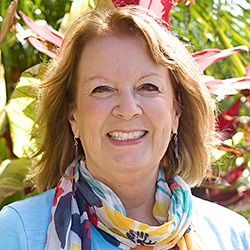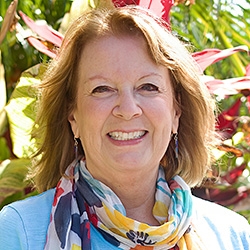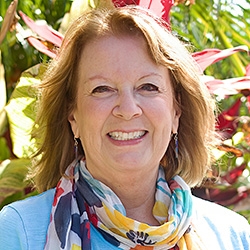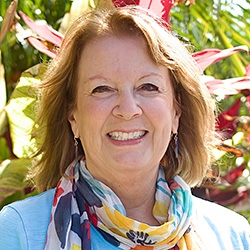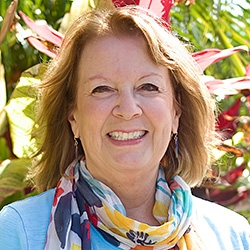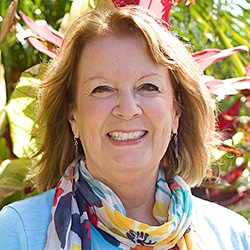

Search Results: challenge
-
When it comes to how you're achieving your goals, notice what you value. Is achievement coming at others' expense? Where is your sense of worth and validation derived from? Do other people in some way set the bar that you strive to surpass? Without comparing to other people, what does success mean to you? Read on for a related story.
-
- Support family, community, and organizations to realign with life
- Get the building blocks of integrative decisions that work for all
- Learn to lean on all available capacities to dance together for liberation
- Reweave the threads of togetherness into something stronger than individual existence
-
Grow your compassionate presence with this 3-process exercise. The processes include: Connecting to and feeling the Life Impulse meditation, Creating your own inner space of compassionate presence exercise, and the Compassionately Embracing visualization. These processes will guide you toward deeper self connection and compassionate presence.
-
Anytime you create something new in your life, you can fulfill your need for creativity. Expand your concept of what it means to be creative. Read on for examples.
-
For many people, attempting to connect with others across differences can feel akin to walking through a minefield. In this course recording Roxy explores a variety of concepts and practices that can help you navigate situations that might be confusing, challenging, or even shocking. And she'll be delving into key differentiations, such as equity and equality. This recording will offer a renewed sense of clarity around a number of theories that may help explain specifically why the areas of power, advantage, and rank tend to be so difficult to work with.
-
- Celebrate and nurture your relationship to the Earth — and each other!
- Explore your connections to family, partner, work, nature, self and more
- Discover new ways to grow in community and work together to make this world a better place
- Engage and immerse yourself in NVC while making new friends!
-
- Easier and steadier access to presence, awareness and self-connection in relationships and challenging situations
- Illumination of basic Buddhist and NVC principles
- A deeper understanding of how to live the Buddhist precepts of non-harming, mindful speech and deep listening
- An introduction to useful tools for families and communities to create a culture of Nonviolent Communication
-
Trainer Tip: When we have no hope of a conversation working out, our attitude towards the situation can contribute to our lack of success. Instead, start conversations that might be challenging with the intention of success. This can shift the energy immediately toward it. This doesn’t guarantee success, but can increase its chances.
-
- Look at your old patterns with warmth – while also opening yourself up to change.
- Increase your self-compassion – and gain a solid ground to stand on.
- Become intimate with your own survival strategies – and those of the people you love.
- Support healing and connecting in your long-term relationships – even when it seems there is no resolution in sight!
-
- Understand the essential relationship between personal healing and social change — and how to communicate it to others.
- Increase your compassion capacity for different ways of being in the world.
- Get clarity about the difference between equity and equality — and how to generate equitable processes in your communities and networks.
- Obtain tools to explore the various factors that contribute to your understanding of power and privilege — including your own.
-
Trainer Tip: Even when it's tempting to coerce or match might with might, we can strive to meet our needs without negatively affecting others. Instead of convincing anyone to do it our way or to value the same things we value, we can focus on what we value: compassion among people and valuing everyone’s needs. By doing this we are actually more likely to meet our own needs and we are better able to live peacefully.
-
Trainer Tip: Sometimes the expression of our needs can sound like demands or criticism. This can make it harder for people to want to contribute to us. Today, pay attention to how you express your needs. Find ways to release the emotional charge.
-
Trainer Tip: In our effort to be heard, we often forget to listen. In fact, your need to be heard will not be met completely until you have heard how what you said affects the other person. If we want to ensure that we're heard we can ask the other person to reflect what they heard us say. And we can hear what's going on with them. It is important to remember that a dialogue is not complete until both people have been heard.
-
Robert's passion was in the spirituality of the Nonviolent Communication (NVC) process. He saw NVC both as a process that helps people connect more authentically with themselves and others, and as a spiritual practice and way of living. The worldwide NVC community mourned when Robert died in 2021. He left behind a legacy of work that emerged from a lifetime of inquiry into the intersection between spirituality and human communication.
-
We can use anger as an important signal to let us know that we perceive a threat to a universal need or value, directing our attention to something so that we can take effective action, and avoid harmful thought patterns. For example, instead of dwelling on a "should," focus on addressing unmet needs through boundaries and effective communication.
-
Inclusive teams face challenges openly, embracing discomfort to build real safety.
-
Dear friends,
#UnlockYourAuthenticVoice
This has been on my mind lately. What does it mean to unlock my authentic voice? How do I talk about things that matter to me without creating emotional distance between myself and others? I’ve found this especially challenging after the US presidential election this month— half the voters are devastated by Donald Trump’s election, and the other half are elated. The extremes are vast. Sometimes imagining a coming-together feels hopeless.
-
Dear friends,
I greatly enjoyed my annual New Year’s Peace Meditation yesterday. It always brings together NVC enthusiasts from across the world and is one of my favorite traditions for welcoming the New Year!
How was 2024 for you? For me, it was a bumpy ride. There were moments of joy spending time with our 3-year-old grandson, mine and Kim’s first international trip together (a bonafide vacation that was void of work), and precious time with family and friends. There was also heartbreak...
-
Our brains often quickly categorizes things as good, bad, right, or wrong and then determines who’s to blame or praise. Maybe this supports the illusion of order and predictability, thus provides a false sense of safety and reassurance. But its less effective in truly meeting our needs. By practicing "Living in the Observation," we can focus on reality, avoid unhelpful rumination, and find peace and empowerment in everyday life.
-
Trainer Tip: Use gratitude to overcome resistance and find enjoyment when life feels difficult.

Quick Links
Subscription Preferences
Stay In Touch!
Looking for ways to keep up with NVC Academy news, get special offers, free resources, or words of inspiration? Here are five ways to stay engaged:

